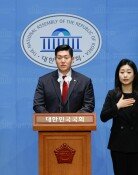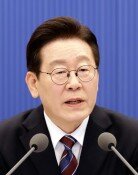Korea Maybe on the Same Track as Japanese Bubble Economy
Korea Maybe on the Same Track as Japanese Bubble Economy
Posted May. 25, 2003 21:41,
There is a growing concern that the nation might follow the bubble economy of Japan due to skyrocketing real estate prices despite the sluggish economy. In fact, the trend of the nations real estate and financial markets are currently very close to that of its neighbor at the end of the 1980s. Also, the Korean governments response is similar to what the Japanese government did to combat the problem.
Samsung Economic Research Institute (SERI) has issued a warning on May 25 in its report on lessons from the Japanese bubble economy.
Real estate and stock prices in Japan continued to rise starting in 1983 and reached their climax in 1989. When the bubble burst, they plunged and the economy fell into a general recession which lasted over a decade. Currently, the Nikkei Stock Average hovers around 7,000 to 8,000 points, down from the highest 38,915 points in 1989 while land prices tumbled by 80%.
The SERI report analyzed that when comparing the latest Korean economy with the Japanese bubble economy, the two have similarities: soaring real estate prices gradually spread from the capital and metropolitan area, and asset prices surged due to excessive liquidity and increased lending by financial institutions as a result of lowered interest rates.
Accordingly, the nations economy resembles the initial stage of the Japanese bubble economy as household debt and asset value are increasing simultaneously. In addition, the two economies need to keep interest rates low because of global economic uncertainties.
In particular, the institute pointed out that the cause of the bubble, the structural imbalance between supply and demand including excessive liquidity, low interest rates, and real estate market, has not been resolved. The bubble is likely to grow larger. The most serious problem is that there is no place to put the money in except the real estate market, it added.
The interest rates of the nation continue to fall due to relevant policies and the short-term floating fund, which went up to 387 trillion won at the end of April this year from 257 trillion won at the end of 2001, can flow into the real estate market at any time, it analyzed.
If the bubble gets bigger and then bursts, it will be very difficult to deal with it because there are still insolvent companies and financial institutions, said Choi Hee-kap, a chief researcher at SERI. Unlike right after the 1997 economic crisis, it is hard to deal with the problems of insolvency because financial soundness has been damaged. Moreover, the nations economy is not as strong as that of Japan. So the country lacks the ability to survive long-term economic recession, he added.
Therefore, in order to get rid of the cause of the bubble, SERI proposed that the government and companies take more active measures: when the economy shows signs of recovery, they should absorb the floating fund by gradually raising interest rates and discouraging loans to real estate investors by lowering the current 60% mortgage rate. In addition, the institution said that the government and companies should put less money in the real estate and construction markets to stimulate the economy, and do more to activate productive investment in other areas.
Yeon-Su Shin ysshin@donga.com







